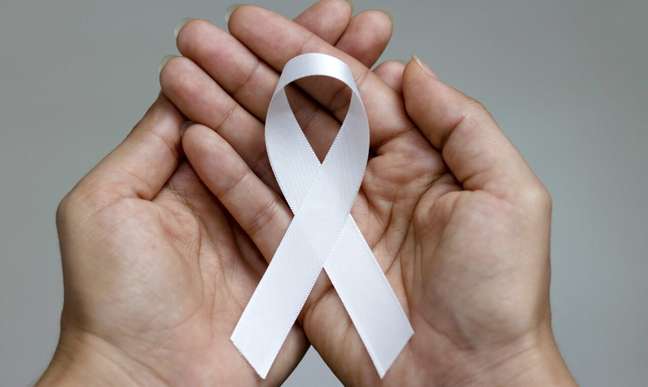The campaign was created in 2014 with the aim of encouraging mental health care, improving well-being and quality of life

January is the month for personal reviews and life (re)planning. This is because it is at the beginning of each new year that people feel inspired to reflect on their well-being and their relationships. It is in this same period that, since 2014, the January White campaign has taken place. It is a social initiative created by the Minas Gerais psychologist and teacher Leonardo Abrahão with the aim of highlighting the importance of taking care of mental health.
In 2023 the movement completes 10 editions working for the psychoeducation of people and for the creation of public policies dedicated to the psychosocial needs of mental health. According to World Health Organization (WHO) data for 2022, nearly one billion people, including 14% of the world’s adolescents, live with some mental disorder. The situation has worsened with the Covid-19 pandemic and systematically due to taboos such as prejudice and lack of knowledge of the broad concept of mental health.
White January and the importance of mental health
Furthermore, according to Leonardo Abrahão, “since the beginning of human history, all people, as well as all social institutions, have faced, almost blindly, the complex and inescapable psychological issues that characterize human beings. [Elas estão] deal with human psychodynamics without the right support of sentimental education, emotional guidance and encouragement of self-knowledge, mental autonomy and psychosocial commitment, circumstances that the White January Movement is dedicated to combating and resolving. Many human sufferings, with or without mental disorders, can be prevented or better managed if people learn simple strategies to take care of mental health”, explains the specialist.
Now in its tenth year, the campaign’s theme is “Life requires balance!” – motto that changes every year. ‘Those who take care of the mind take care of life’, ‘those who take care of emotions take care of humanity’, ‘those who take care of themselves already take care of the other’, ‘without psychoeducation there is no there will be a solution’, ‘self-knowledge: this also has to do with one’s mental health’ are some examples already publicized to draw everyone’s attention to taking care of oneself and of others, as well as underlining the importance of struggles for public policies aimed at collective health, underlines Andrea Chaves, psychologist and specialist in the area of mental health.
The expert points out that mental health is relevant because it is among the requests that most affect the population, especially people of working age. About 50 million suffer from some kind of disorder, according to data from the Brazilian Association of Psychiatry, for the year 2021. The diagnoses are varied: depression, mood disorders, attention deficit, anxiety, among others, affecting other age groups as well, including children and the elderly.
Causes of disease
Andrea explains that this phenomenon is typical of countries like Brazil, considered a nation with high levels of anxiety among the population. “There is a set of factors that we can attribute to people’s mental illness, such as the economic situation, problems of social inequality, difficult access to care, the performative model of exhausting work and the difficulty of emotional ties. Another relevant factor is the taboo on the part of the population to seek a psychiatrist or a specialist in psychology”, specifies the psychologist.
The expert points out that, contrary to what most people imagine, there is no single factor that is the cause of the crises faced by people. In general, a series of constraints are associated with the phenomenon, such as biological, social, emotional factors. According to Andrea, also spiritual factors, which are related to the beliefs that people have.
Consequently, the practitioner draws attention to the importance of not categorizing feelings, not judging the suffering of the other, and not associating psychiatric disorders with weakness or lack of faith. “The most assertive behavior is encouraging people to seek help and specialist care, accompanying them during the period,” she points out.
How to prevent mental health problems
Among the measures recommended by professionals and responsible bodies are those related to the support of the patient, family and friends. These attitudes are essential for the success of the treatment, emphasizes the psychologist. Being comfortable with yourself and with any other individual, understanding life’s challenges, knowing how to deal with all emotions and seeking help when needed, for example, are other recommendations that help maintain quality of life.
“Family and friends support the network, the practice of physical activities, cultivate hobbies, have some kind of faith and practice it. These are good guides for anyone to take care of their emotions,” underlines the professional. Therefore, it is necessary for everyone to pay attention to their own needs and limitations. Furthermore, it is important to evaluate what serves as support and what helps bring balance and emotional well-being to ensure a healthier, more mature and lasting life.
+The best content in your email for free. Choose your favorite Terra newsletter. Click here!
Source: Terra
Ben Stock is a lifestyle journalist and author at Gossipify. He writes about topics such as health, wellness, travel, food and home decor. He provides practical advice and inspiration to improve well-being, keeps readers up to date with latest lifestyle news and trends, known for his engaging writing style, in-depth analysis and unique perspectives.







